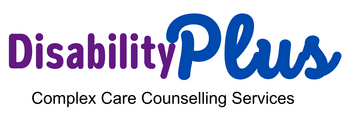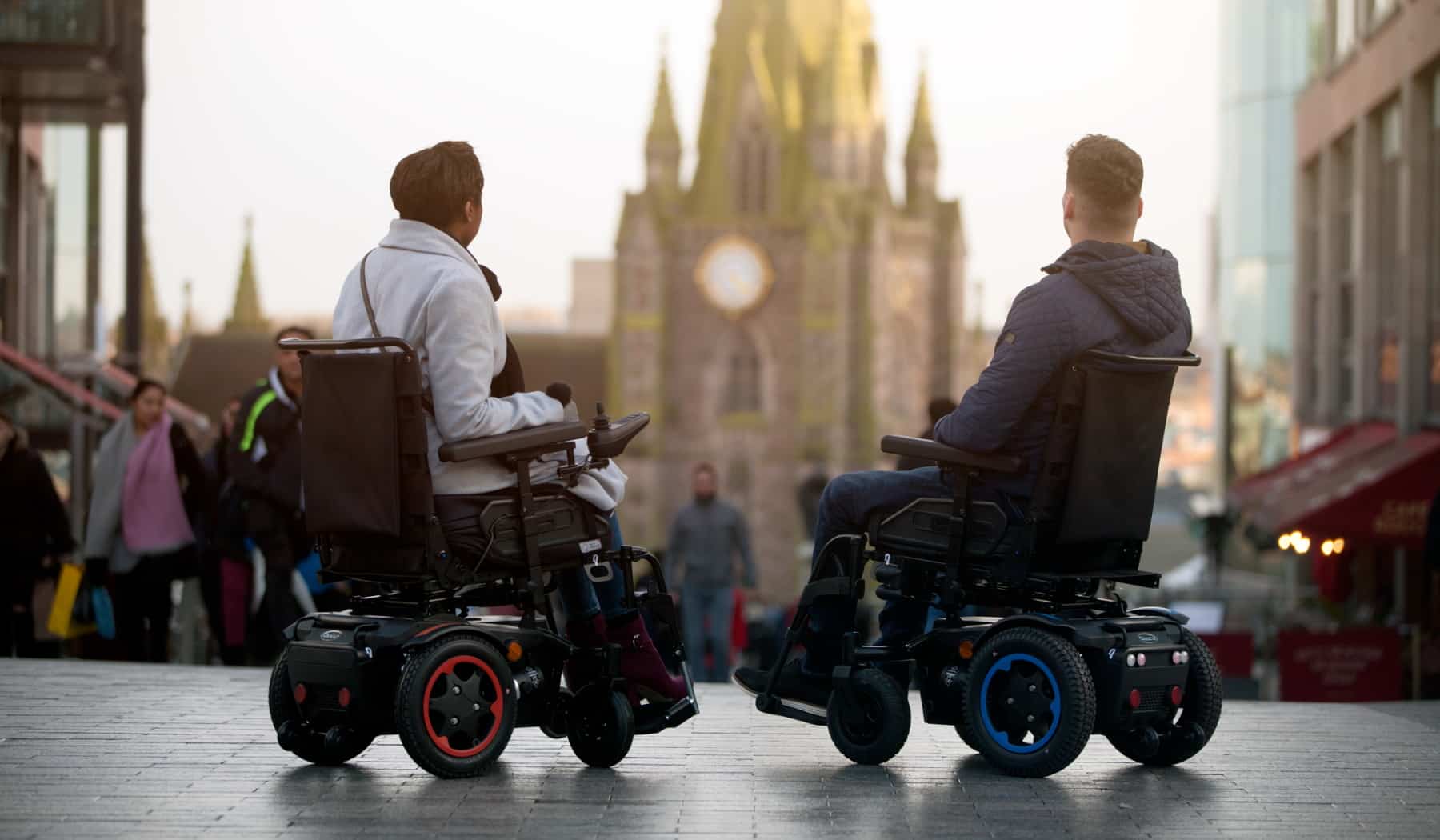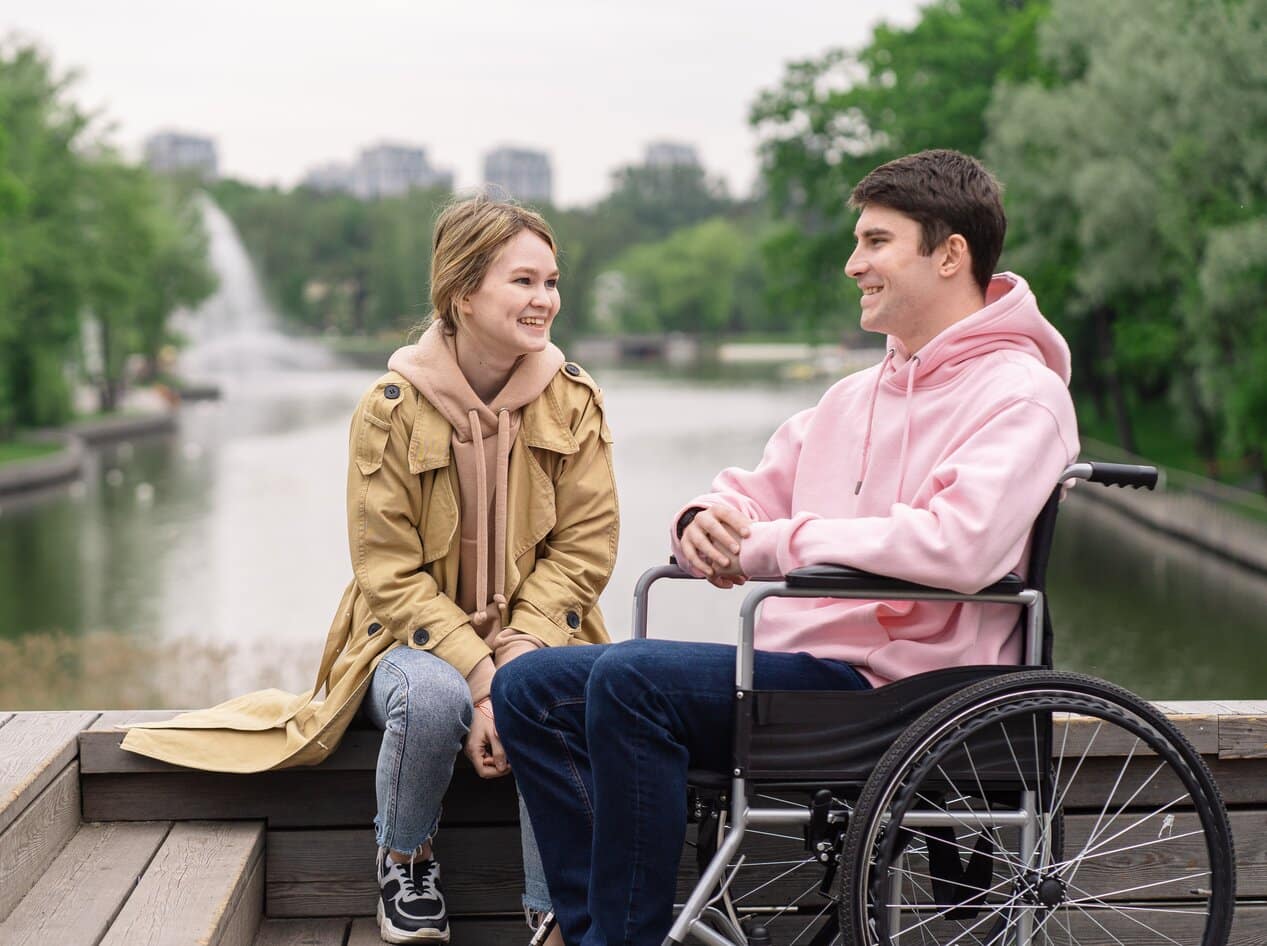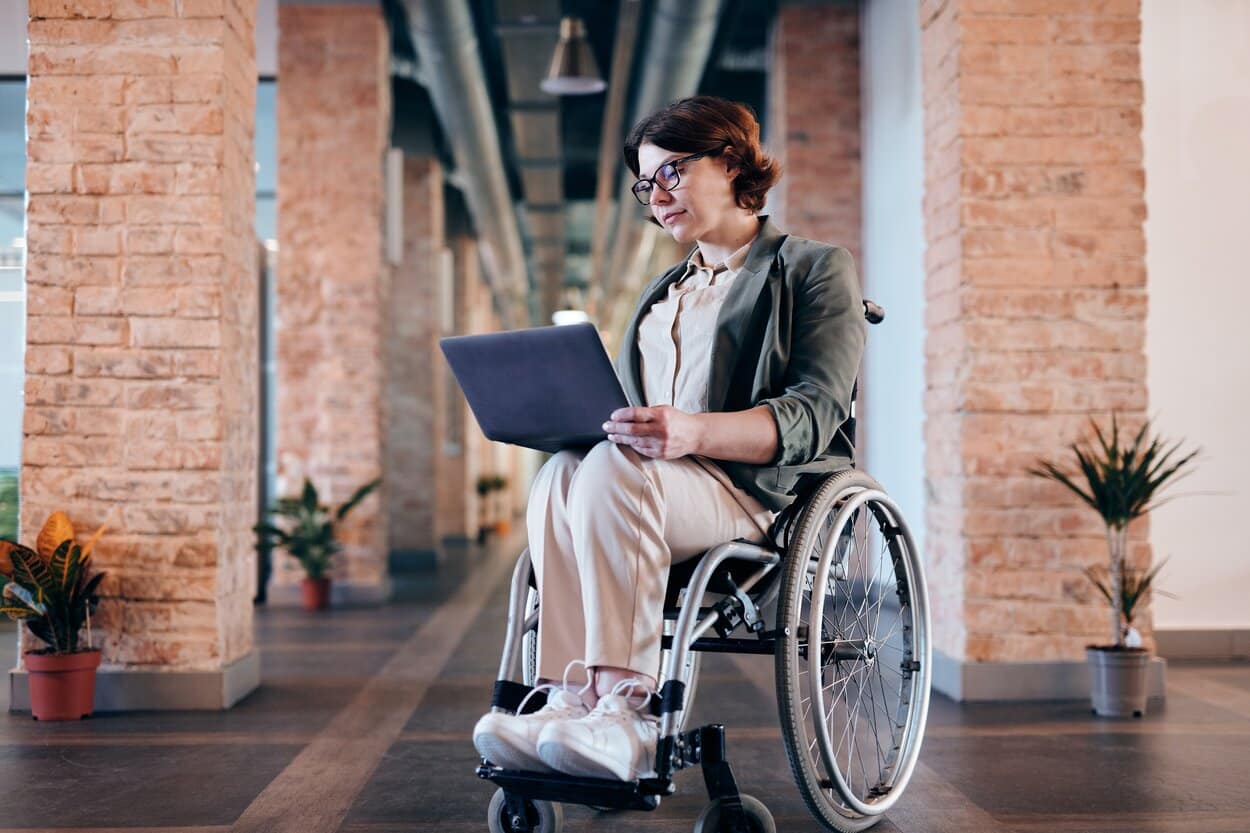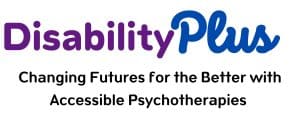Spinal Cord Injuries; Information
Spinal Cord Injuries; Information
Mental Health
Spinal Cord Injuries Prevalence – Nearly half (48.5%) of the population with spinal cord injury suffered mental health problems of depression (37%), anxiety (30%), clinical-level stress (25%) or post-traumatic stress disorder (8.4%).
Overall, there was a twofold or more increase in the probability of emotional disorders compared to the general population. Of those with one mental health disorder, 60% also had at least one other emotional disorder, representing a substantial 56% increase over the general population in the probability of comorbidity of psychopathology.
Complete vs Incomplete SCI
The effects of spinal cord injuries (SCIs) vary greatly depending on the severity and location of the damage to the spinal cord. No two injuries are the same, and their outcomes also can be completely different based on several factors, including the level of post-trauma early intervention care and physical therapy the injured person receives.
A generation ago, complete spinal cord injuries were the majority among spinal cord injury survivors. Thanks to excellent rapid response, improved technology, and a better understanding of spinal cord injuries, complete spinal cord injuries make up less than half of SCI injuries today. Understanding the difference between these two injury types can help you better predict your recovery trajectory.
What?
Complete spinal cord injuries occur when the spinal cord is fully compressed or severed, eliminating the brain’s ability to send signals below the point of injury.
Incomplete spinal cord injuries encompass any SCI in which a person retains some feeling and/or function below the injury site in one or more areas of the body.
These types of spinal cord injuries can have an enormous variety of effects. For example, an incomplete spinal cord injury may be so mild that there is barely any muscle weakness or other signs that an injury has occurred. Or it can be so severe that it results in a person having symptoms similar to a complete spinal cord injury.
Differences
In complete spinal cord injuries, the spinal cord is fully severed, and function below the injury site is eliminated. In comparison, incomplete SCIs occur when the spinal cord is compressed or injured, but the brain’s ability to send signals below the site of the injury is not completely removed. Incomplete SCIs are the most varied and account for more than 65% of all spinal cord-related injuries.
When comparing complete and incomplete spinal cord injuries, it can be challenging to discern which type you have. Particularly in the first weeks after an injury, swelling may interfere with function. When the swelling goes down, an injury that appeared to be a complete spinal cord injury might turn out to be incomplete.
Anterior Cord Syndrome
An anterior spinal cord injury affects the front of the spinal cord and interferes with motor and sensory pathways, including touch, pain, and temperature. Many SCI survivors with anterior cord syndrome can recover some movement.
Brown-Sequard Syndrome
This rare but serious condition is a lesion on the spinal cord that results in the loss of some motor and sensory functions below the injury site. A Brown-Sequard spinal cord injury commonly asymmetrically affects the side of the body in which the spinal damage occurred.
Cauda Equina Syndrome
This condition affects the bundle of nerve roots around the lumbar level of the spinal cord and often is the result of spinal compression. It causes a loss of sensation and muscle weakness—but not necessarily a loss of movement. Repair or regeneration of some of the nerves is possible to help improve function.
Central Cord Syndrome
This syndrome occurs when an injury impacts the centre of the cervical spinal cord. It often results in a loss of sensation. Survivors may recover some movement in their legs, but arm movement recovery is rarer.
Conus Medullaris Syndrome
Affecting the sacral cord and lumbar nerve roots, this syndrome often affects the control of excretory functions and lower limb reflexes and often shares symptoms with cauda equina syndrome.
Posterior Cord Syndrome
This syndrome occurs due to damage to the rear of the spinal cord. Most survivors maintain good movement, muscle tone and posture. However, they often struggle with poor coordination skills.
Symptoms
With an incomplete spinal cord injury, the spinal cord’s functions are only partially compromised. The effects of an incomplete spinal cord injury, then, vary more widely. Someone with an incomplete spinal cord injury due to an infection may retain significant function. But wounded survivors whose injury is high on the spine but incomplete may face obstacles like those faced by a complete spinal cord injury survivor.
Some characteristics of an incomplete spinal cord injury include:
Retaining some sensation below the site of the injury. The sense of feeling may come and go and may be much weaker than the sensations you used to experience.
Being able to move some muscles below the site of the injury. The extent of movement may vary, and you may have good control over some muscles but no control over others.
Pain below the injury. Many incomplete spinal cord injury survivors report issues with chronic pain.
With both incomplete and complete spinal cord injuries, mobility impairments, including tetraplegia/quadriplegia and complete paraplegia, are common.
Fixed?
Since incomplete injuries allow your spinal cord to retain some function and to communicate some signals from the brain, survivors of incomplete spinal cord injuries often progress in recovery more rapidly than those with complete SCIs.
If you’ve received a diagnosis of a complete or incomplete spinal cord injury, it does not mean that recovery is impossible. Some factors that play critical roles in your recovery include the rehabilitative and medical care you receive early in your journey to recovery, having a positive attitude, and being willing to lean on your existing support system.
Spinal Cord Injury Scaling & Grading
It isn’t just a matter of your cord being fully intact or completely severed; there are issues of spinal contusion (bruising), compression, and inflammation that can affect your brain’s ability to send signals.
As a result of these variations, there are different levels or “grades” that are used by medical professionals to assess the severity of the damage to your cord, ranging from “A” to “E.” The higher the grade, the more severe the damage tends to be
A
This is considered a complete SCI. No sensory or motor function is preserved (including your sacral segments S4-S5).
B
Your sensory function — but not motor function — is preserved below the neurological level (including the sacral segments S4-S5).
D
You meet the criteria defined by grade C by having preserved motor function as well as at least half of your muscle functions having a grade of three or higher.
C
This is an incomplete spinal cord injury in which your motor function is preserved below the neurological level, or you meet grade B criteria and have some motor function.
E
Your motor function and sensory scores are normal. You may have suffered a spinal cord injury, but you will not experience paralysis and loss of sensations. However, there may be neurological or muscular changes or deficits.
Welcome to DisabilityPlus
National Spinal Cord Injury Counselling Services
Spinal Cord Injury Counselling is available to anyone aged 18 & over & for those self-paying aged 14.
Free Funding Applications, Self-Pay & Professional Organisation Referrals.
Referrals from the General Public, GPs, Rehabilitation Centres, Mental Health Boards & Professional Organisations for Quality Counselling & Psychotherapies.
Our Counselling comes from the perspective of lived experiences, not a Text Book or Training Course.
Spinal Cord Injury Counselling is for Individuals:
- Incomplete SCI Injury &
- Complete SCI Injury
We Specialise in Secondary Conditions Including:
- Grief, Dependence, Loss
- Relationship Difficulties
- Sexual Functions
- Living with an SCI & Peoples Perceptions
- Future Prospects & Planning
As specialists we also support:
- Couples
- Care-Givers
- Family Members & Friends
Mental Health Conditions Including:
- PTSD
- Depression
- Anxieties
- Body Dysmorphia
- Emotional Regulation
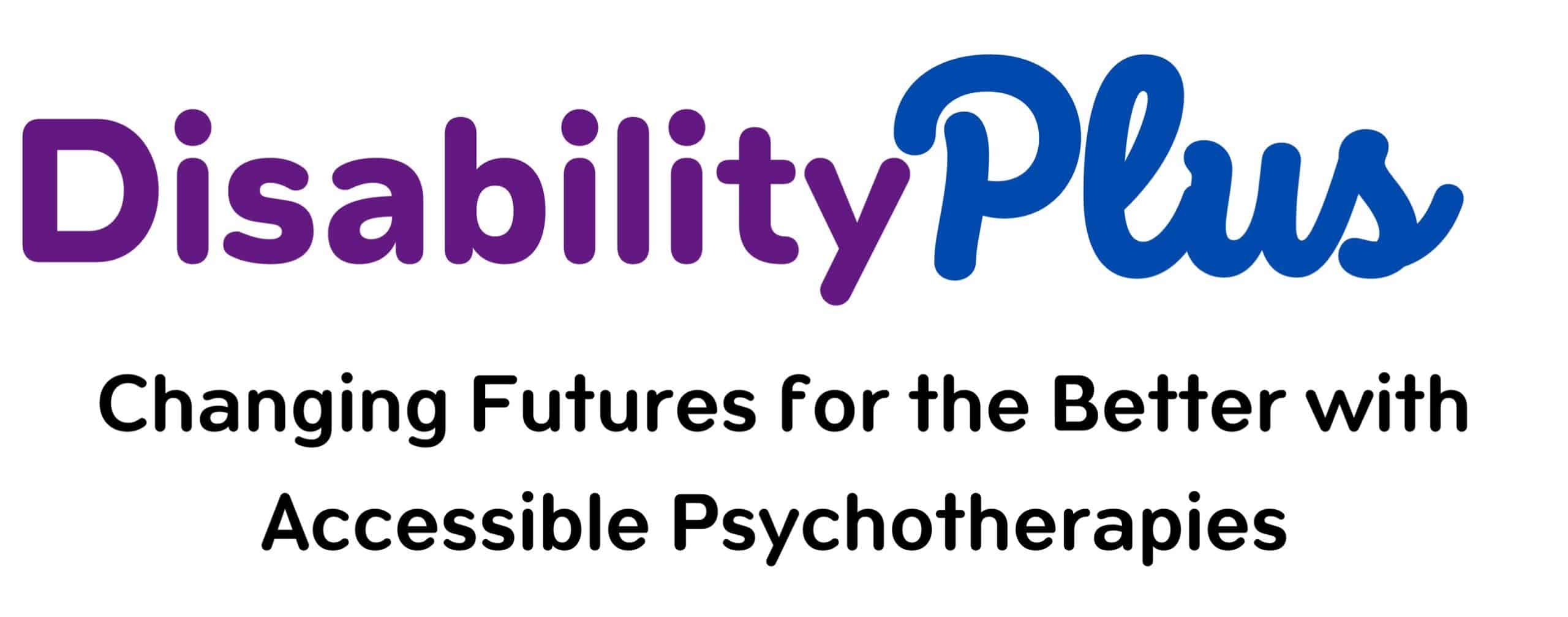
Psychologists & Psychotherapists with Spinal Cord Injuries Support individuals & Care-Givers with Spinal Cord Injury Counselling.
A Spinal Cord Injury can have a devastating effect on your life; the extent of disability depends on where along the spinal cord the injury occurs and the severity of the damage.
Our Psychologists with stage 1 & 2 injuries have extensive knowledge through lived experiences, they know how you feel and the challenges you are facing.
Living with an SCI can be overwhelming and lead to people experiencing many complex emotions.
So, if you’re struggling right now, please get in touch with us.
Talking to someone outside your family or circle of friends may help you better understand your feelings and manage them more effectively.
Enquiries
You can make contact with us to ask any question, we are here between 9:30 & 5 pm Monday through to Friday for phone calls, or you can email and text us at any time.
We always try and reply to emails within 24 hours.
Specialist
Our counsellors are trained to listen to your problems & find out what’s causing them and help you find a solution.
As well as listening and discussing important issues with you, we can suggest strategies for resolving problems and, if necessary, help you change your attitudes and behaviour.
Spinal Cord Injury Counselling
There are many reasons people come to a therapist, and there is no limit to what can be discussed in Counselling.
Seeking the help of a qualified Psychologist and Psychotherapists can assist you in exploring thoughts and emotions and making sense of why you are thinking and feeling a certain way.
Relationship
One of the most important aspects of counselling & psychotherapy is the relationship you form with your therapist.
You may have experienced trauma and lived with negative and debilitating thoughts and emotions.
Some people feel anxious or depressed, or disconnected from friends or family. Others sometimes describe a lack of purpose in life and a lack of enjoyment in everyday life.
Using therapists with a Spinal Cord Injury will help you experience a sense of belonging and connection as they will have similar challenges to yours.
Understanding
When a person starts counselling with us, we understand the different types of Spinal Cord Injury, including:
- A complete Spinal Cord Injury causes permanent damage to the area of the spinal cord that is affected. Paraplegia or tetraplegia is the result of complete spinal cord injuries.
- An incomplete SCI refers to partial damage to the spinal cord.
This is an essential part of the counselling process; it ensures you and the counsellor can talk openly about certain life situations you may be experiencing without you having to explain your particular type of SCI to the counsellor.
Individual Support
We take pride in tailoring individual support for adults with a Spinal Cord Injury. We ensure their needs are met by delivering a flexible, personalised service.
Assurance
Our Counsellors & Psychotherapists are driven to support people with SCI; this is not a job for them; it’s their passion.
All our counsellors are registered & qualified to deliver exceptional therapies.
Free Funding
We can make an application for free funding; if approved, the sessions will be paid for you.
Talk to us or self-refer to start the funding process
Initial Consultation
If you are applying for free funding the first session is free.
This session is an assessment, it’s the foundation to enable us to make the application for you with a first-class treatment plan that is specific to you.
Self-Pay
You can start by self-paying, this allows you to start counselling almost immediately, there is no waiting for funding, no reports & you are in control.
Affordable
For the general public, we heavily discount our session fees.
This enables you to easily access counselling at an affordable price.
Your initial first session is priced at £50 & after that, you can pay as you go or buy a saver pack which is three sessions paid in advance with further reductions.
Fees for people with assistive communication devices are higher as the session time goes from 50 minutes to 70 minutes.
Mixed Plan
You may wish to start the sessions as soon as possible & want free funding.
We can support this with a self-paying plan & in the background, we make the funding application for you.
The first session would be free as that would be the assessment for the funding application.
Video Sessions
Your counselling is by video sessions, why?
There are three specialists with an SCI in the whole of the UK. By having therapy online you can connect with your specialist no matter where you live.
Are you Ready to Start
Contact us to ask a question or make your referral to start the journey to a brighter future.
Quick Links
Contact Form
Click for Quick Links
Professional Links

Welcome to DisabilityPlus National Spinal Cord Injury Counselling Services
Spinal Cord Injury Counselling is available to anyone aged 18 & over & for those self-paying aged 14.
Free Funding Applications, Self-Pay & Professional Organisation Referrals.
Referrals from the General Public, GPs, Rehabilitation Centres, Mental Health Boards & Professional Organisations for Quality Counselling & Psychotherapies.
As a specialist service, we support people with counsellors who have:
- Incomplete (Partial Damage)
- Complete (Tetraplegia & Paraplegia)
Our team understand secondary conditions, such as Grief, Dependence, Relationship Difficulties, Sexual Functions & Body Dysmorphia as examples.
Spinal Cord Injury Counselling is for:
- Individuals with an Incomplete or Complete Injury
- Couples
- Care-Givers
- Family Members & Friends
Individual Support
We take pride in tailoring individual support for adults with SCI. We ensure their needs are met by delivering a flexible, personalised service.
Assurance
Our Psychologists & Psychotherapists are driven to support their own community; this is not a job for them it’s their passion.
All our counsellors are registered & qualified to deliver exceptional therapies.
Mental Health
Most people with spinal cord injuries do not have mental health problems. However, some people can realise that they are becoming depressed & anxious.
It is not just the body that feels the strain of SCI – the mind can suffer too.
Whether caused by an Accident or Injury, the daily frustrations of living with SCI, the fact is that adults with spinal cord injury are twice as likely to experience mental health problems.
Life Experiences
Carers are a critical part of life for people with more severe SCI; however, resentment can build with feelings of little control over financial & daily life.
Social anxieties can fester from the point of injury; you may feel people holding eye contact for a second or two longer than they should. This can affect your self-esteem; some people even say they feel self-imposed shame.
Work, romance, and leisure are all things that can be taken for granted, but for many, it’s precious, unrealistic or something to aspire to.
The impact of a spinal cord injury on all different levels for all different people is complex.
We understand all these issues and many more because our counsellors have an SCI.
Relationship
One of the most important aspects of counselling & psychotherapy is the relationship you form with your therapist.
Using therapists with SCI will help you experience a sense of belonging and connection as they will have similar challenges to yours.
Video Sessions
Your counselling is by video sessions; why?
There are three specialists with spinal cord injury that we know of in the whole of the UK.
By having spinal cord injury counselling online, you can connect with your specialist no matter where you live.
Free Funding
We can make an application for free funding if approved the sessions are paid for you.
Talk to us or self-refer to start the funding process
Initial Consultation
If you are applying for free funding the first session is free.
This session is an assessment, it’s the foundation to enable us to make the application for you with a first-class treatment plan that is specific to you.
Self-Pay
You can start by self-paying, this allows you to start counselling almost immediately, there is no waiting for funding, no reports & you are in control.
Self-Pay
You can start by self-paying, this allows you to start counselling almost immediately, there is no waiting for funding, no reports & you are in control.
For the general public, we heavily discount our session fees. This enables you to easily access counselling at an affordable price.
Session Fees for 50 minutes:
Initial Session £50
Pay as you go £70
Saver3 £180 (3 Sessions)
For those who use assistive communication devices, session times move from 50 to 70 minutes with a session fee of £90 & saver pack of 3 sessions at £220
Mixed Plan
You may wish to start the sessions as soon as possible & want free funding.
We can support this with a self-paying plan & in the background, we make the funding application for you.
The first session would be free as that would be the assessment for the funding application.
Contact us
You can make contact us to ask any question, we are here between 9:30 & 5 pm Monday through Friday for phone calls, or you can email and text us at any time.
We always try and reply to emails within 24 hours.
Click; Quick Contacts
Mobile
01932881849
Contact Form
Click; Referral Forms
Self-Pay
Carers
Free Funding
BSL Referral
Organisation Referrals
Organisations
NHS Referral
Spinal Cord Injury Counselling Services
Spinal Cord Injury Counselling is available to anyone aged 18 & over & for those self-paying aged 14.
Free Funding Applications, Self-Pay & Professional Organisation Referrals.
Referrals from the General Public, GPs, Rehabilitation Centres, Mental Health Boards & Professional Organisations for Quality Counselling & Psychotherapies.
As a specialist service, we support people with counsellors who have:
- Incomplete (Partial Damage)
- Complete (Tetraplegia & Paraplegia)
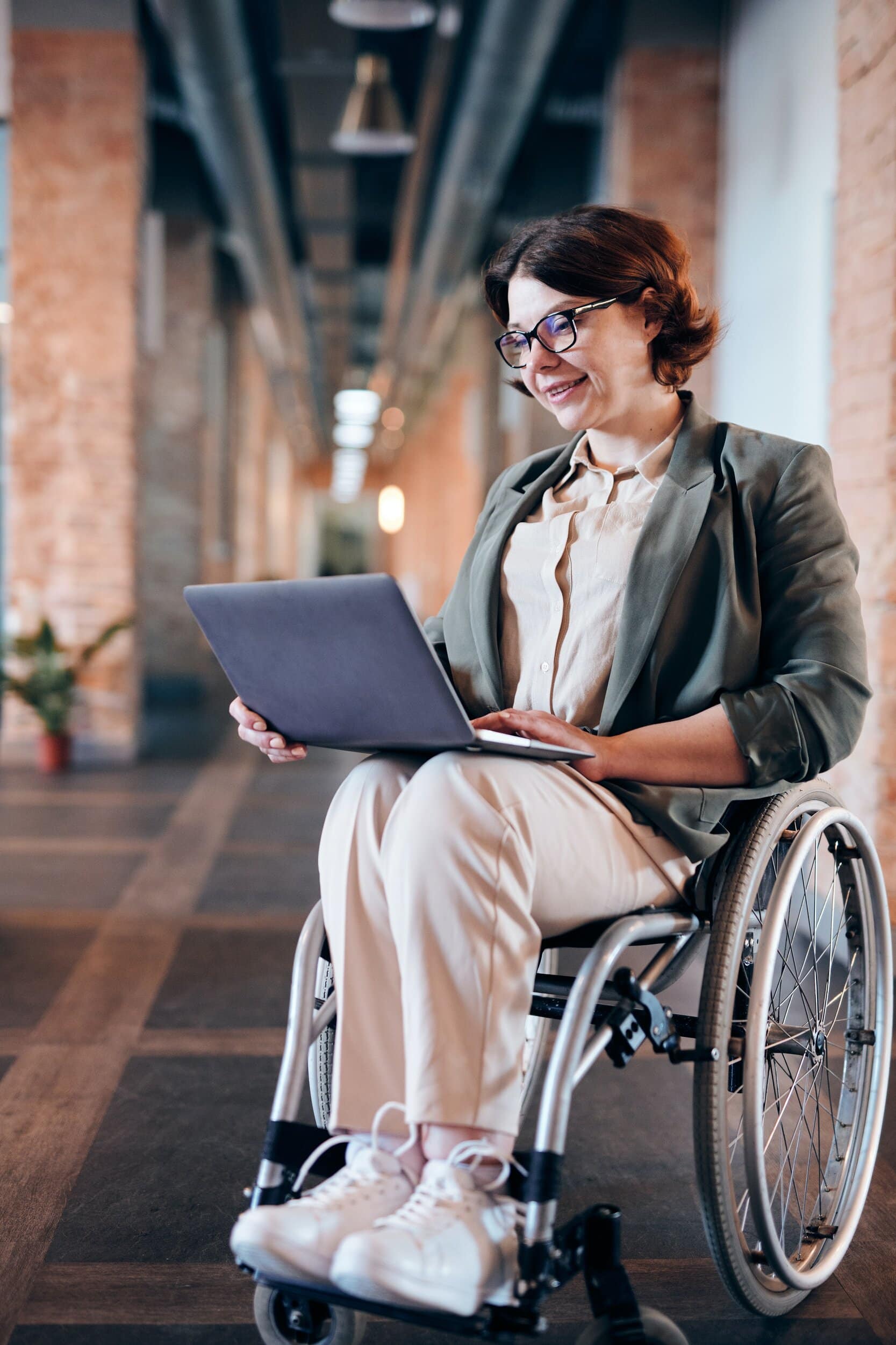
Psychologists & Psychotherapists with Spinal Cord Injuries Support individuals & Care-Givers with Spinal Cord Injury Counselling.
Our team understand secondary conditions, such as Grief, Loss, Dependence, Relationship Difficulties, Sexual Functions & Body Dysmorphia as examples.
Spinal Cord Injury Counselling is for:
- Individuals with an Incomplete or Complete Injury
- Couples
- Care-Givers
- Family Members & Friends
A Spinal Cord Injury can have a devastating effect on your life; the extent of disability depends on where along the spinal cord the injury occurs and the severity of the damage.
Our Psychologists with stage 1 & 2 injuries have extensive knowledge through lived experiences, they know how you feel and the challenges you are facing.
Living with an SCI can be overwhelming and lead to people experiencing many complex emotions.
So, if you’re struggling right now, please get in touch with us.
Talking to someone outside your family or circle of friends may help you better understand your feelings and manage them more effectively.
Enquiries
Free Funding
Organisations
Self-Pay

Personalised Support
We take pride in tailoring individual support for adults with Spinal Cord Injuries.
We ensure their needs are met by delivering a flexible, personalised service.
Shared Experiences
Our Counsellors & Psychotherapists are driven to support people with Spinal Cord Injuries, this is not a job for them; it’s their passion.
Shared Experiences
One of the most important aspects of counselling & psychotherapy is the relationship you form with your therapist.
You may have experienced trauma and lived with negative and debilitating thoughts and emotions.
Some people feel anxious or depressed, or disconnected from friends or family.
Others sometimes describe a lack of purpose in life and a lack of enjoyment in everyday life.
Using therapists with a spinal cord injury will help you experience a sense of belonging and connection as they will have similar challenges to yours.
Free Funding
We can make an application for free funding; if approved, the sessions will be paid for you.
If you are applying for free funding the first session is free.
This session is an assessment, it’s the foundation to enable us to make the application for you with a first-class treatment plan that is specific to you.
Talk to us to see if you qualify or self-refer to start the funding process
Self-Pay
You can start by self-paying, this allows you to start counselling almost immediately, there is no waiting for funding, and no reports & you are in control.
For the general public, we heavily discount our session fees. This enables you to easily access counselling at an affordable price.
Session Fees for 50 minutes:
Initial Session £50
Pay as you go £70
Saver3 £180 (3 Sessions)
For those who use assistive communication devices, session times move from 50 to 70 minutes with a session fee of £90 & saver pack of 3 sessions at £220
Mixed Plan
You may wish to start the sessions as soon as possible & want free funding.
We can support this with a self-paying plan & in the background, we make the funding application for you.
The first session would be free as that would be the assessment for the funding application.
Contact us
You can make contact with us to ask any question, we are here between 9:30 & 5 Monday through to Friday for phone calls, or you can email and text us at any time.
We always try and reply to emails within 24 hours.
Click; Quick Contacts
Mobile
01932881849
Contact Form
Click; Referral Forms
Self-Pay
Carers
Free Funding
BSL Referral
Organisation Referrals
